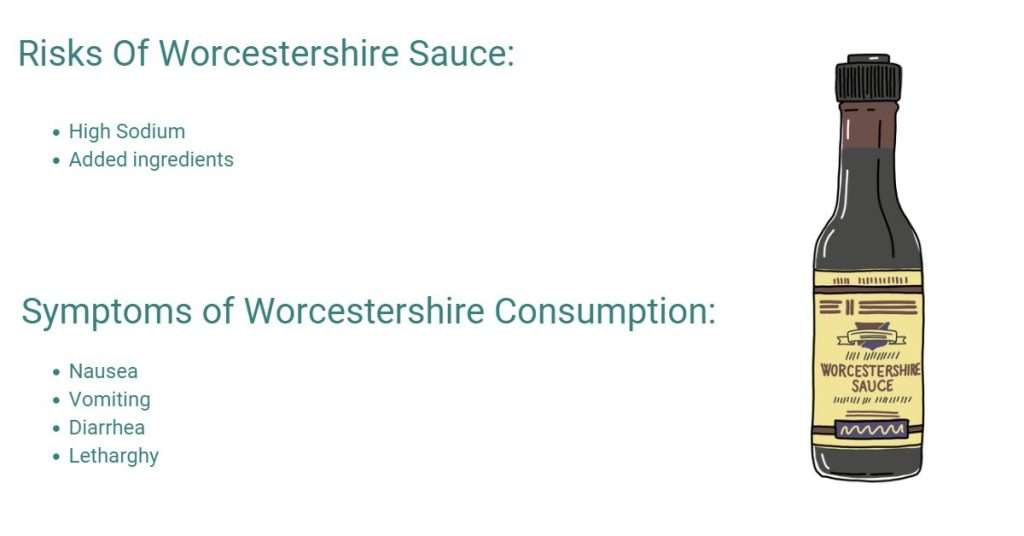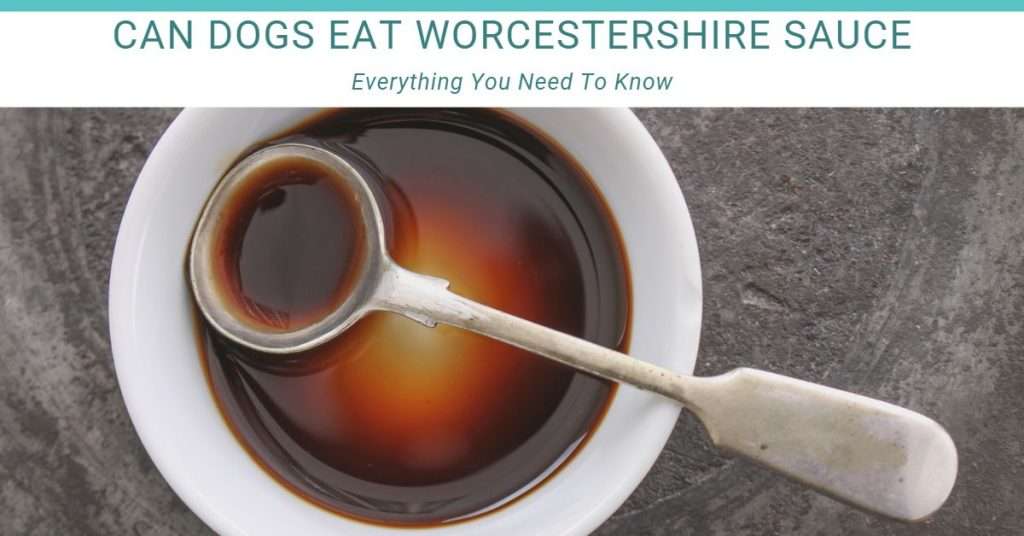Worcestershire Sauce: Safe for Dogs?
As a devoted dog owner, you want nothing but the best for your furry companion, and their diet plays a crucial role in their overall health and well-being. It’s common to wonder about the safety of certain human foods for dogs, and one such question often asked is, “Can dogs eat Worcestershire sauce?” In this post we will address the topic, can dogs have Worcestershire sauce, laying out the potential risks, toxicity concerns, and safe alternatives. By the end, you’ll have a clear understanding of whether Worcestershire sauce is suitable for your dog or not.
Spoiler alert*** Dogs can eat Worcestershire sauce in moderation, but that does not mean they should. It is best to avoid this particular sauce due to the risks associated with the ingredients.
What is Worcestershire Sauce?
Worcestershire sauce, a condiment originating from England, is a savory and tangy blend of ingredients. This sauce is traditionally made with vinegar, molasses, anchovies, tamarind, garlic, onion, and a variety of spices, this sauce has a complex flavor profile that adds depth to numerous dishes. It is often used as a marinade, seasoning, or table sauce, adding a unique touch to meat, poultry, and even vegetarian recipes.
With all of these ingredients, some of them are bound to have negative side effects for dogs. Find out more below.
Understanding Dogs’ Digestive System
Before we address the specific concerns related to dogs and Worcestershire sauce, it’s important to understand the nuances of a dog’s digestive system. Dogs have shorter digestive tracts than humans, designed to process a diet primarily consisting of meat. While they are omnivorous and can tolerate some plant-based foods, their bodies process and metabolize food differently from ours. Therefore, it’s crucial to consider their specific dietary needs when making choices about what they can consume. It is pretty safe to say that many people safe foods, especially processed foods are not good for your dog’s health. Worcestershire sauce is also nor great for your dogs health.
Can Dogs Eat Worcestershire Sauce?
While Worcestershire sauce may tempt your taste buds, it is essential to be aware of the potential risks and concerns associated with dogs consuming this condiment. Below we have a list of potential risks and concerns. We also break it down into which specific ingredients are toxic to dogs.
Potential Risks and Concerns
One of the primary concerns is the high sodium content found in Worcestershire sauce. Dogs are more sensitive to sodium than humans, and excessive intake can lead to health problems such as dehydration, electrolyte imbalances, and kidney issues.
In addition to the excessive salt, some Worcestershire sauce brands may contain garlic and onions. When a dog consumes onions and or garlic, it can cause a type of anemia that breaks down their red blood cells. While this is a rare occurrence, and the dog would need to consume a large amount to reach this level of toxicity, it is something to be aware of.
Harmful Ingredients in Worcestershire Sauce
Garlic and onions, commonly used in Worcestershire sauce, contain compounds that are toxic to dogs. Even in small amounts, these ingredients can have adverse effects on their health, including gastrointestinal irritation. In excessive amounts, they can damage the dog’s red blood cells. There have been some interesting studies on this exact topic, to learn more check out our other posts on alliums. It’s important to keep any food items containing garlic and onions out of your dog’s reach to prevent accidental ingestion.
The Impact of Sodium on Dogs
Sodium is an essential mineral required for proper bodily functions in dogs. However, excessive sodium intake can disrupt the delicate balance within their systems. Consuming foods high in sodium, such as Worcestershire sauce, can lead to increased thirst, elevated blood pressure, and, in severe cases, sodium ion poisoning. This sodium ion poisoning can cause permanent damage to a dog’s kidneys. It is crucial to maintain a balanced sodium level in your dog’s diet to promote their well-being.
Signs of Worcestershire Sauce Toxicity in Dogs
In the event that your dog consumes Worcestershire sauce, it’s vital to be aware of the signs of toxicity. Common symptoms may include vomiting, diarrhea, abdominal pain, weakness, lethargy, increased heart rate, and, in severe cases, collapse. If you notice any of these signs, it is imperative to seek immediate veterinary care to ensure proper treatment and recovery.
In the meantime offer your dog plenty of water and a place that is out of direct sunlight. The GI effects associated with any toxicity can quickly lead to dehydration in your pet.

Safe Alternatives and Moderation
While it’s best to avoid feeding Worcestershire sauce to your dog, there are alternative options and moderation practices that you can adopt to ensure their meals remain enjoyable and safe.
Healthy Herbs and Spices for Dogs
Instead of relying on Worcestershire sauce, consider incorporating dog-friendly herbs and spices to enhance the flavor of your dog’s meals. Parsley, basil, oregano, and turmeric are some examples of safe options that not only add taste but also offer health benefits for your furry friend. These herbs can provide antioxidants, aid in digestion, and contribute to their overall well-being.
Homemade Worcestershire Sauce Alternatives
If you enjoy preparing homemade meals for your dog, you can create Worcestershire sauce substitutes using natural and dog-safe ingredients. Explore recipes that incorporate elements such as low-sodium broth, apple cider vinegar, pet-friendly herbs and spices, and perhaps a touch of molasses for sweetness. By making your own sauces, you have control over the ingredients, ensuring that your dog’s dietary needs are met without compromising their health.
Balanced Diet for Dogs and Consulting a Veterinarian
In addition to addressing the specific concerns surrounding Worcestershire sauce, it is important to emphasize the significance of a well-balanced diet for dogs. Dogs require a combination of proteins, carbohydrates, fats, vitamins, and minerals to thrive. While occasional indulgences can be enjoyable, it’s essential to prioritize a diet that meets their nutritional needs.
Consulting a veterinarian is a valuable step in ensuring your dog’s diet is appropriate and safe. Veterinarians possess the expertise to provide tailored advice based on your dog’s specific requirements, taking into consideration factors such as age, breed, activity level, and any existing health conditions. Their guidance will help you make informed decisions about your dog’s diet, including which foods to avoid and how to provide optimal nutrition.
In conclusion, while Worcestershire sauce can be a flavorful addition to human meals, it is not recommended for dogs due to potential risks and harmful ingredients. Dogs have different dietary requirements and sensitivities, making it essential to prioritize their well-being when considering their food choices. By being aware of the potential risks associated with Worcestershire sauce and exploring safe alternatives and moderation practices, you can ensure that your beloved canine companion enjoys a healthy and balanced diet. Remember to consult your veterinarian for professional guidance tailored to your dog’s specific needs. Your dog’s health and happiness are in your hands, so make informed choices to keep them safe and thriving!



